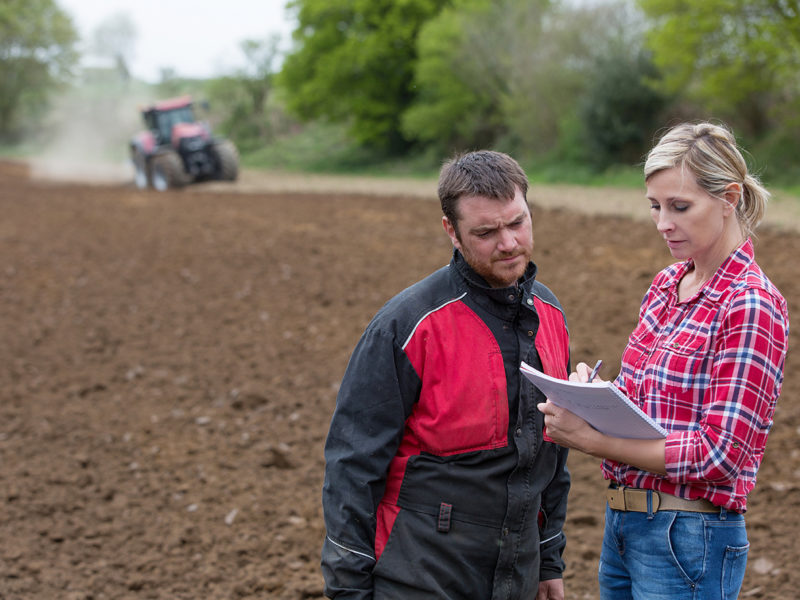People working on sustainability have been talking for years about a tipping point. This may well be the year we’ve reached it.
A mortal threat to human health – COVID-19 – has disrupted the global status quo and will condition everything we do from now on, at least until we have an effective treatment or vaccine. The pandemic joins with the widening effects of climate change and significant social inequality. We can’t go back to the way things were.
Amid the challenges and uncertainties, few matters are more immediate or important than food. The pandemic spotlight has picked out significant weaknesses in long, complex, just-in-time supply chains where food passes through many hands. A few very large companies own key links in those chains, and we’ve realized how dangerously fragile big and concentrated operations are. We have also realized that the many hands that make the chains work are essential, and require appropriate compensation, good working and living conditions and access to health care.
The good news is that food providers and the people of BC are demonstrating adaptability and resilience. And there are many hands and minds willing to help and think our way forward.
The farmers, fishers, food businesses and organizations in BC are engaged. When our restaurants closed and everyone began to cook more at home, retail markets adapted and farmers shifted their planting, marketing plans and sales channels. Smaller processors picked up some of the slack from the big players. Distributors helped re-route product from farms to consumers. Farm and food businesses added or improved online capabilities. To the people immediately involved it probably felt – and may still feel – like daily scrambling, but food has kept growing and moving, and that is a significant achievement.
Missing the mark
In this context, the BC government’s 2019-20 Economic Plan, Emerging Economy Task Force Report and Food Security Task Force Report – conceived pre-pandemic and promoting the theme of BC becoming a world leader in agri-tech and innovation – miss the mark. More relevant are pandemic-informed reports such as the European Commission’s From Farm to Fork, the Green Technology Education Centre’s Rebuilding BC: A Portfolio of Possibilities or the First Nations Health Authority’s Planning for Food Security: a Toolkit for the COVID-19 Pandemic.
There is general agreement that putting more emphasis on closer, shorter supply chains is a good idea because they provide resilience against shocks and stressors. There is also a focus on reducing waste along the chain, which can include the development of new products. If we want robust BC supply chains, here are some suggestions for how a few key organizations could take action:
- BC Ministry of Agriculture: Double extension services, with agrologists, agri-tech experts and other advisors who will get to know farmers and processors on site and connect them with useful resources.
- Universities and colleges: Provide resources that help solve supply chain problems. Pick an area, build relationships, stay with it. A livestock example is the Niche Meat Processors Assistance Network, an information and problem-solving hub operated by extension personnel at Oregon State University.
- Investment Agriculture Foundation of BC: Lean into the possibilities of (re)developing products from existing supply chains and repurposing waste. Livestock examples include fleece, wool and hides.
- Food policy councils and local governments: Provide coordination, something no supply chain can do without. This goes to facilitation, contract development and management, logistics, scheduling and more. Unpaid coordinators tend to burn out, and then supply chains crack or break.
- The Premier: Find a way to insert food into the mandate of every ministry. This can support and reinforce agriculture’s efforts. The BC Ministry of Health’s definition of food security as a “key determinant of health” has proven beneficial. The education minister could make food a key topic for food literacy and citizenship.
Overall, the key resilience variable and hallmark of sustainable food systems is diversity: in seeds, crops, livestock breeds, land and water use practices, business models, not to mention points of view at the table.
These remarks are based on a post-tipping point assumption that our food providers are now in survival mode and we need to reinforce basics. No shiny things, no promises here about making BC a world leader.
Technology has many important and useful roles, but it should be understood as a means to an end, not an end in itself. Provincial reports such as those cited above mistakenly emphasize technical solutions for what is really an enormous adaptive challenge. While these reports were being published, farmers, fishers and food businesses were improvising and innovating like never before. When it comes to charting a path forward, the pandemic has reminded us to listen to them – when they come up for air.
Kathleen Gibson is a policy analyst and founding member of the Capital Region Food and Agriculture Initiatives Roundtable (CR-FAIR), the BC Food Systems Network and Food Secure Canada. Between 2005 and 2012, she assisted with industry’s adaptation to the Meat Inspection Regulation and introduction of BC’s graduated slaughter licensing system.


 Closures underscore need for licensing reform
Closures underscore need for licensing reform